
Dorsoduro: Venice's Artistic Heartbeat
Nestled between the Grand Canal and the Giudecca Canal, Dorsoduro is a haven for art lovers, history buffs, and those seeking a quieter slice of Venice. This charming neighbourhood is home to some of the city's most important art institutions, including the Gallerie dell'Accademia, which houses an impressive collection of Venetian masterpieces, and the Peggy Guggenheim Collection, a modern art museum set in an 18th-century palace. As you wander through Dorsoduro's narrow streets and picturesque squares, you'll find an array of artisan shops, cozy cafes, and lively bars. The Campo Santa Margherita, one of the district's largest squares, is a bustling hub where locals and students gather, especially in the evenings. Don't miss the chance to enjoy a traditional Venetian aperitivo at one of the many outdoor terraces. Dorsoduro also boasts some of Venice's most stunning churches, such as the Santa Maria della Salute, a Baroque masterpiece that offers breathtaking views over the Grand Canal. The neighbourhood's waterfront promenade, the Zattere, is perfect for a leisurely stroll, offering panoramic vistas and a refreshing breeze from the lagoon. Whether you're exploring its cultural treasures or simply soaking in its serene atmosphere, Dorsoduro promises an unforgettable Venetian experience.
Local tips in Dorsoduro
- Visit early in the morning or late afternoon to avoid crowds at major attractions like the Gallerie dell'Accademia and Peggy Guggenheim Collection.
- Take a vaporetto ride along the Giudecca Canal for unique views of Dorsoduro's stunning architecture.
- Enjoy a gelato from one of the artisanal gelaterias on the Zattere promenade while watching the sunset over the lagoon.
- Wear comfortable shoes as Dorsoduro's cobblestone streets and bridges require a lot of walking.
- Check out the local markets and shops for unique Venetian crafts and souvenirs that you won't find in the more touristy areas.
Dorsoduro: Venice's Artistic Heartbeat
Nestled between the Grand Canal and the Giudecca Canal, Dorsoduro is a haven for art lovers, history buffs, and those seeking a quieter slice of Venice. This charming neighbourhood is home to some of the city's most important art institutions, including the Gallerie dell'Accademia, which houses an impressive collection of Venetian masterpieces, and the Peggy Guggenheim Collection, a modern art museum set in an 18th-century palace. As you wander through Dorsoduro's narrow streets and picturesque squares, you'll find an array of artisan shops, cozy cafes, and lively bars. The Campo Santa Margherita, one of the district's largest squares, is a bustling hub where locals and students gather, especially in the evenings. Don't miss the chance to enjoy a traditional Venetian aperitivo at one of the many outdoor terraces. Dorsoduro also boasts some of Venice's most stunning churches, such as the Santa Maria della Salute, a Baroque masterpiece that offers breathtaking views over the Grand Canal. The neighbourhood's waterfront promenade, the Zattere, is perfect for a leisurely stroll, offering panoramic vistas and a refreshing breeze from the lagoon. Whether you're exploring its cultural treasures or simply soaking in its serene atmosphere, Dorsoduro promises an unforgettable Venetian experience.
Iconic landmarks you can’t miss
Basilica Santa Maria della Salute
Discover the breathtaking beauty of Basilica Santa Maria della Salute, a Baroque masterpiece that captures the spirit of Venice and its rich cultural heritage.

Ca' Rezzonico
Discover the splendor of Venetian art and culture at Ca' Rezzonico, an exquisite museum showcasing the opulence of the 18th-century nobility.
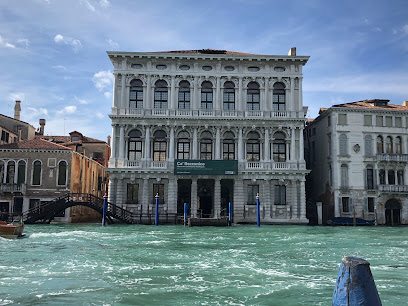
Punta della Dogana - Pinault Collection
Discover the captivating Punta della Dogana in Venice, home to the Pinault Collection and stunning views of the Grand Canal and San Marco square.
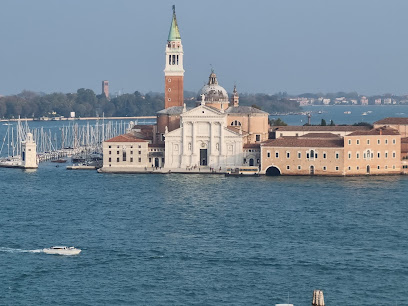
Chiesa di San Barnaba
Discover the exquisite Chiesa di San Barnaba in Venice, a breathtaking blend of art, history, and serene spirituality nestled in the Dorsoduro district.
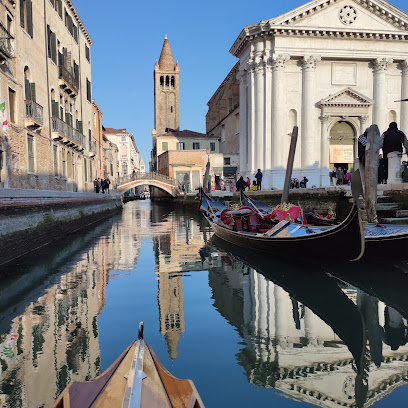
Squero di San Trovaso
Discover the historic Squero di San Trovaso in Venice, a traditional boatyard showcasing the art of gondola craftsmanship amidst charming canals.
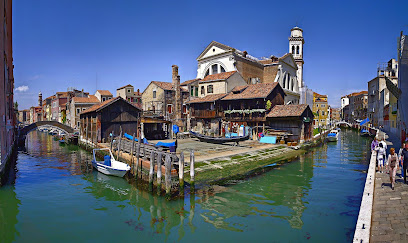
Venetian Experience
Experience the beauty and charm of Venice at the Venetian Experience, where traditional hospitality meets modern comfort.

Campo Santa Margherita
Experience the vibrant atmosphere and rich history of Campo Santa Margherita, a charming square in Venice filled with local culture and stunning architecture.
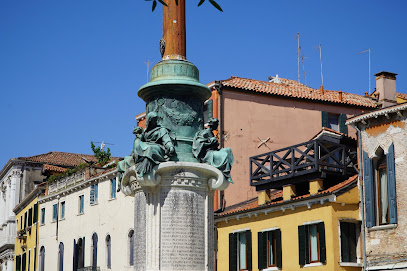
Abbazia di San Gregorio
Explore the serene beauty and artistic treasures of Abbazia di San Gregorio, a historic abbey and art gallery in the heart of Venice.
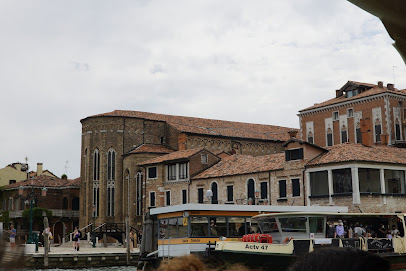
Ariani Cicogna Palace
Explore the enchanting Ariani Cicogna Palace in Venice, a historical treasure reflecting the city's rich architectural heritage and cultural allure.
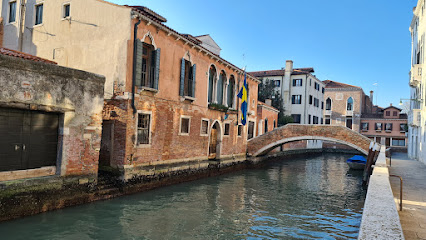
Palazzo Barbarigo
Discover the enchanting Palazzo Barbarigo, a hidden architectural gem in Venice that showcases the city's rich history and stunning artistry.
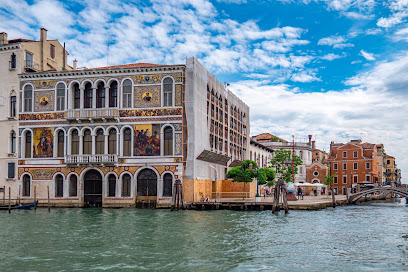
Fondazione Venetian Heritage Onlus
Explore the heart of Venice's artistic legacy at Fondazione Venetian Heritage, a cultural center dedicated to art preservation and restoration.
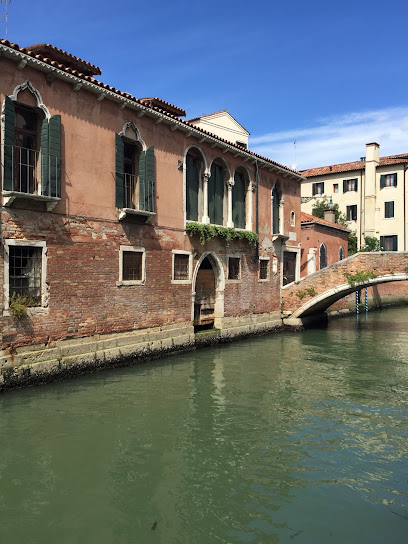
Zattere agli Incurabili
Discover the serene beauty of Zattere agli Incurabili, a picturesque waterfront promenade in Venice offering stunning views and a taste of local culture.
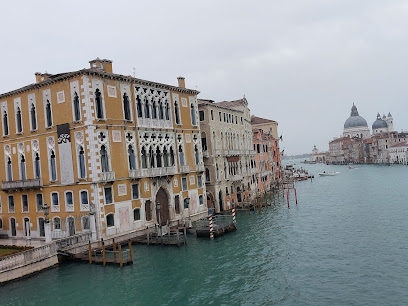
Unmissable attractions to see
Doge's Palace
Explore the stunning Doge's Palace in Venice, a historical masterpiece showcasing exquisite art and rich Venetian culture.
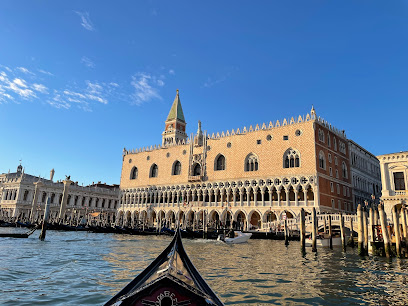
Peggy Guggenheim Collection
Discover modern art masterpieces at the Peggy Guggenheim Collection, an iconic museum in Venice showcasing works by the greats of the 20th century.
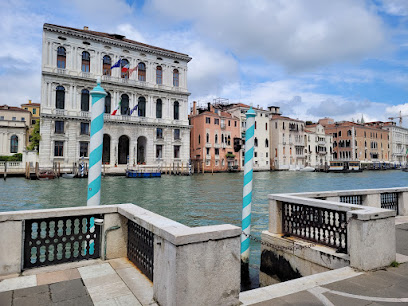
Basilica di Santa Maria della Salute
Explore the breathtaking beauty and rich history of Basilica di Santa Maria della Salute, a stunning baroque masterpiece in Venice.

Gallerie dell'Accademia
Explore the rich artistic heritage of Venice at Gallerie dell'Accademia, home to masterpieces by renowned Venetian artists.
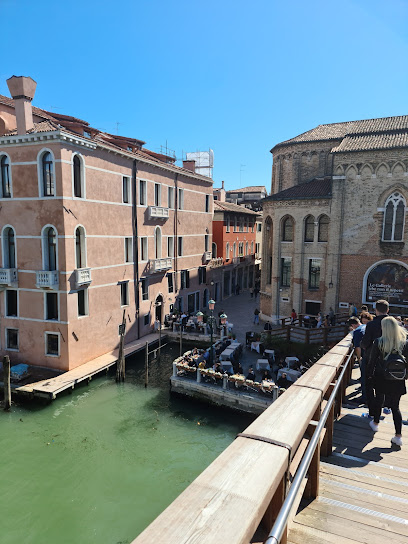
Ca' Rezzonico
Explore the opulent Ca' Rezzonico in Venice, a Baroque masterpiece showcasing art and history along the Grand Canal.
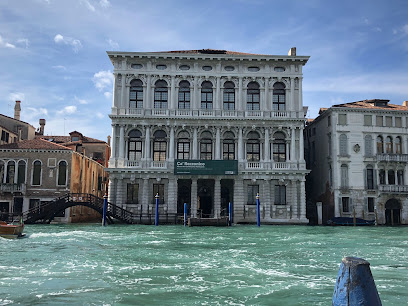
Punta della Dogana - Pinault Collection
Discover contemporary art in a historic setting at Punta della Dogana, home to the exquisite Pinault Collection in Venice.

Palazzo Da Mula Morosini
Explore the majestic Palazzo Da Mula Morosini, a stunning architectural gem in the heart of Venice, reflecting the city's rich history and elegance.
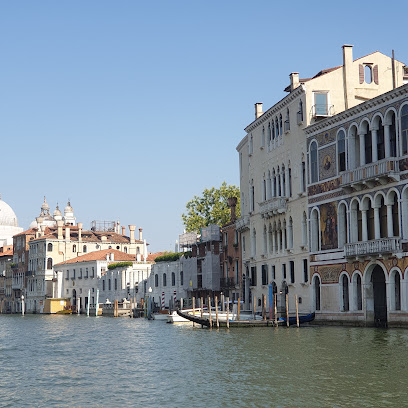
Ariani Cicogna Palace
Discover the regal elegance of Ariani Cicogna Palace, a renowned tourist attraction in Venice showcasing the city's rich architectural heritage.
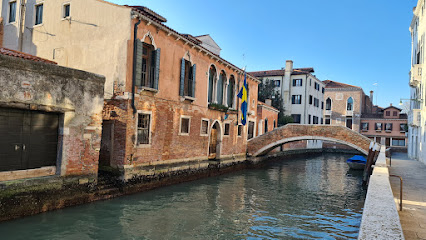
Palazzo Salviati
Experience the splendor of Palazzo Salviati, a hidden gem in Venice that showcases the city's rich history and stunning architecture.
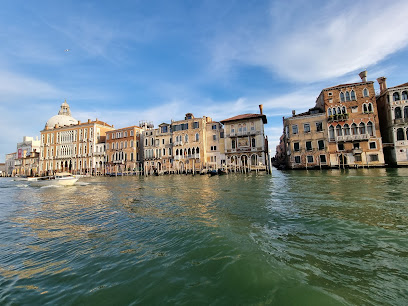
Zattere agli Incurabili
Discover the serene charm of Zattere agli Incurabili, a picturesque waterfront gem in Venice with stunning views and local delights.
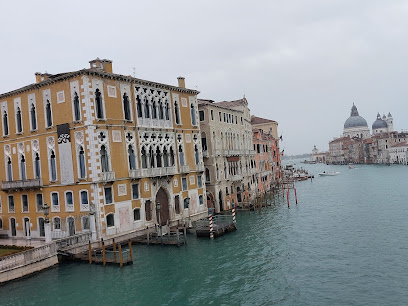
Essential places to dine
Trattoria ai Cugnai dal 1911
Experience authentic Italian flavors at Trattoria ai Cugnai dal 1911 in Venice – where tradition meets taste.
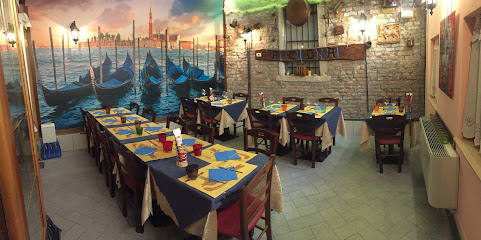
Bakarò
Experience authentic Venetian dining at Bakarò, where exquisite Italian cuisine meets vibrant cocktails in a charming atmosphere.
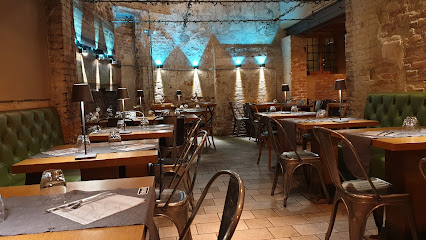
Osteria Alla Bifora
Experience authentic Venetian cuisine at Osteria Alla Bifora—where every meal is a celebration of local flavors.
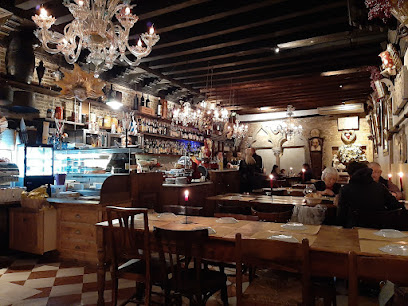
Ristorante Oniga
Experience authentic Italian and seafood delights at Ristorante Oniga, nestled in Venice's picturesque Dorsoduro district.
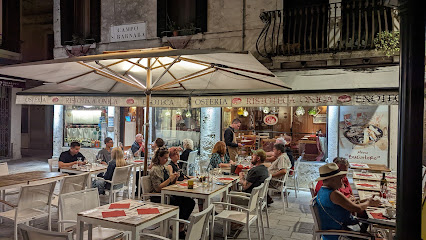
Osteria Da Codroma
Experience authentic Italian and seafood cuisine at Osteria Da Codroma in Venice's picturesque canalside setting.
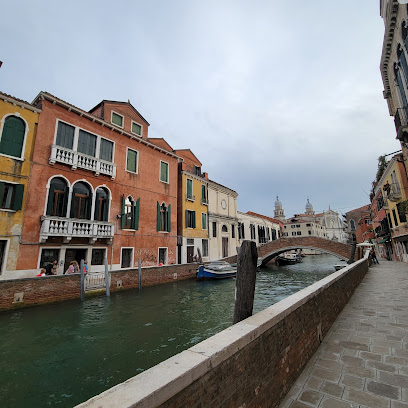
Osteria Enoteca Ai Artisti
Experience authentic Italian cuisine at Osteria Enoteca Ai Artisti in Venice - a culinary haven nestled along picturesque canals.
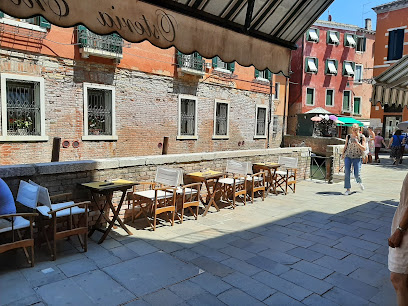
Agli Alboretti Venice Restaurant
Discover authentic Italian cuisine and fresh seafood at Agli Alboretti, where Venetian charm meets culinary excellence.
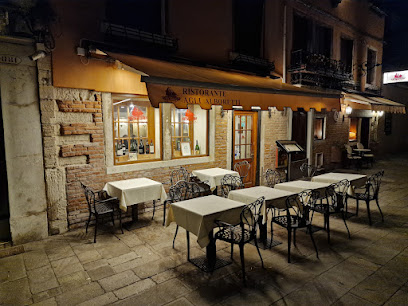
Ristorante Lineadombra
Experience exquisite Italian and seafood cuisine at Ristorante Lineadombra in Venice's charming Dorsoduro district.
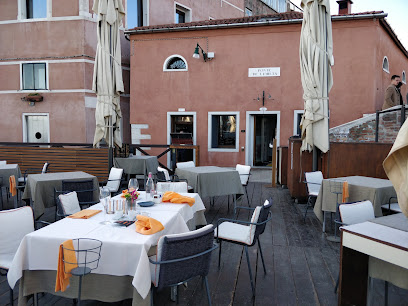
La Bitta Venezia
Experience authentic Venetian cuisine at La Bitta Venezia – where tradition meets culinary excellence in the heart of Venice.
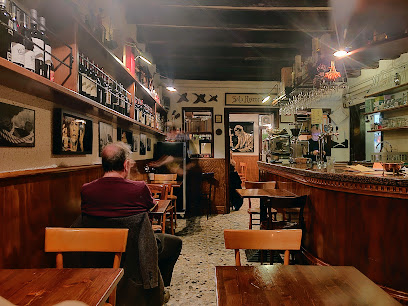
Osteria Ca' del Vento
Experience authentic Venetian cuisine at Osteria Ca' del Vento – where fresh seafood meets traditional Italian flavors in a charming setting.
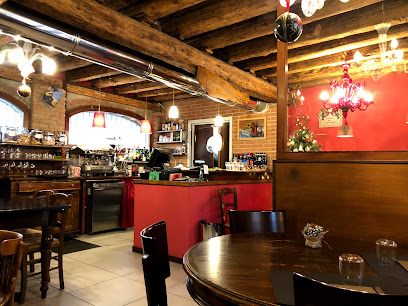
Markets, malls and hidden boutiques
Il Graffio Venezia
Explore Il Graffio Venezia, where exquisite handcrafted handbags embody the spirit of Venetian artistry and style.
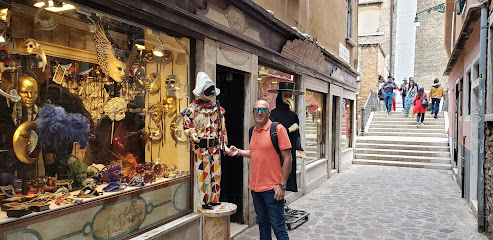
Gnostic Tower Dorsoduro
Explore Gnostic Tower Dorsoduro, where fashion and art intertwine in Venice's vibrant district, creating an unforgettable shopping experience.
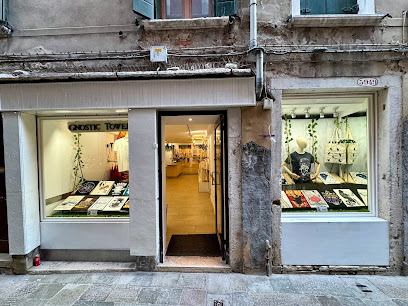
La Casa Di Loto
Explore the unique fashion offerings at La Casa Di Loto, a premier clothing store in Venice's charming Dorsoduro district.
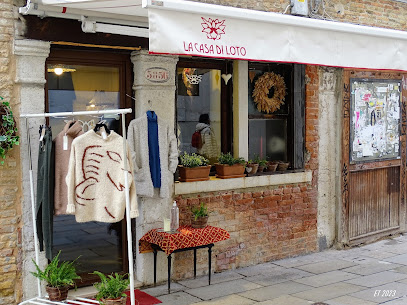
Bottega Cini by The Merchant of Venice
Discover the exquisite blend of perfumes, artisanal crafts, and Venetian tradition at Bottega Cini in Venice, Italy.
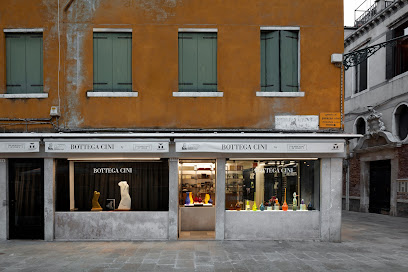
3D Concept
Discover the charm of Venice through unique collectibles at 3D Concept, where every item holds a story waiting to be told.
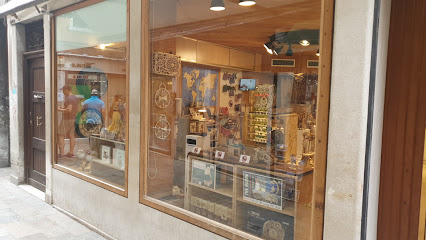
Toletta Glass Venezia
Discover the beauty of Venetian craftsmanship at Toletta Glass Venezia, where unique Murano glass treasures await every visitor.
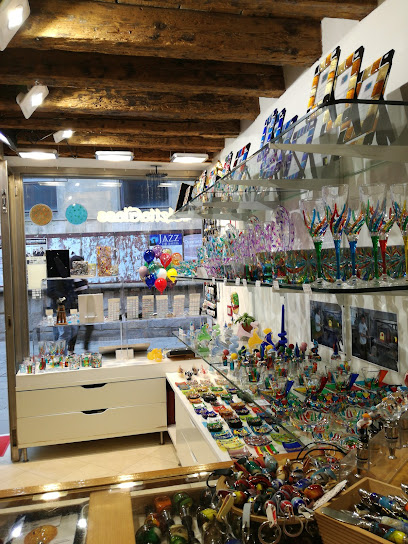
madera
Explore Madera, the enchanting novelty store in Venice, where unique treasures and artistic creations await every visitor.
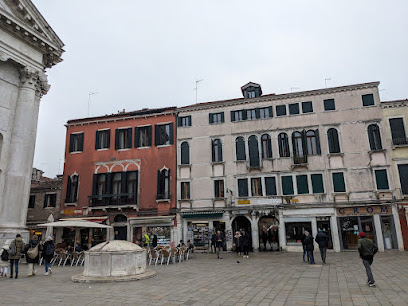
Mijoy
Explore Mijoy in Venice for unique Italian souvenirs that capture the essence of your travel experience.
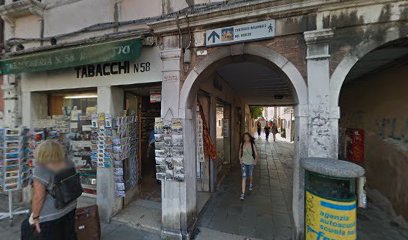
Spazio MA
Explore the elegance of Italian fashion at Spazio MA, a premier dress store in Venice's charming Dorsoduro district.
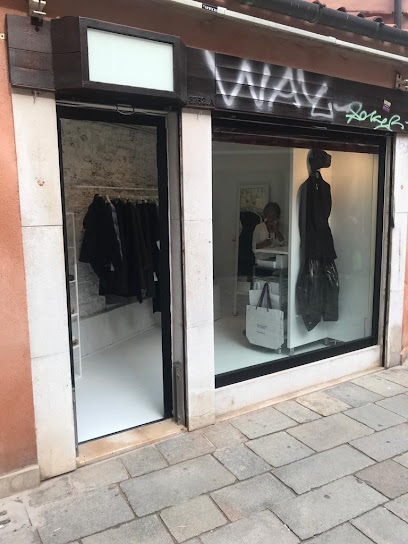
Ca' Foscari Shop
Explore the heart of Venice through unique gifts and artisanal treasures at Ca' Foscari Shop, where every item tells a story.
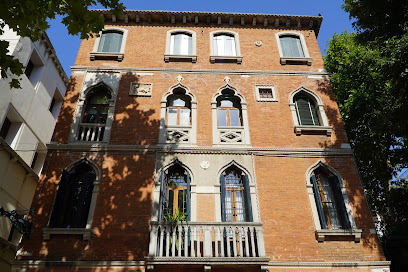
Essential bars & hidden hideouts
Osteria Al Squero
Discover the authentic taste of Venice at Osteria Al Squero, where exquisite tapas and a fine selection of wines await in a charming setting.
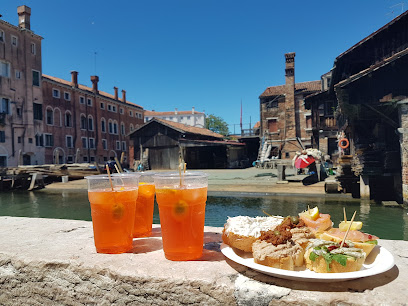
Cantine del Vino già Schiavi
Discover the authentic flavors of Venice at Cantine del Vino già Schiavi, a beloved wine bar offering local wines and delicious cicchetti in a charming setting.
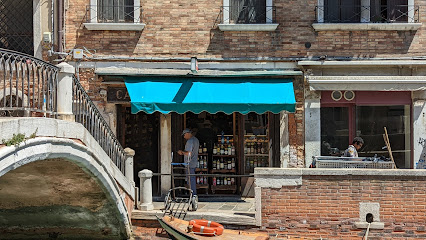
Corner Pub
Discover the essence of Venetian hospitality at Corner Pub, where delicious bites and great drinks await in a charming atmosphere.
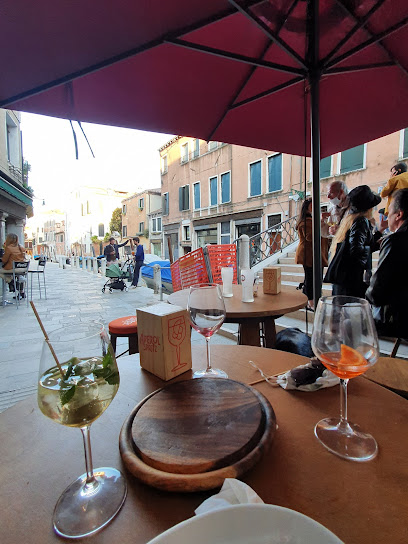
Bakarò
Experience the vibrant flavors of Venice at Bakarò, where traditional Italian dishes meet a lively cocktail bar in a charming setting.
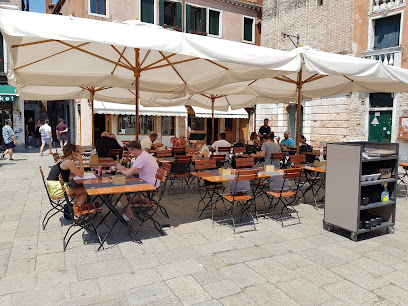
Margaret DuChamp
Discover the lively Margaret DuChamp pub in Venice, offering a vast selection of beers and a cozy atmosphere perfect for relaxation and socializing.
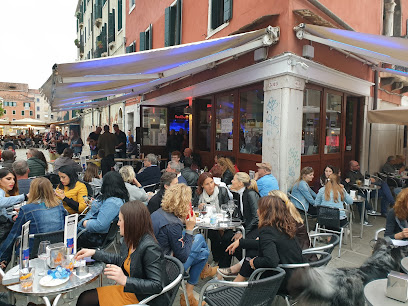
Osteria Ai Pugni
Discover authentic Venetian flavors at Osteria Ai Pugni, a charming wine bar and restaurant in the heart of Venice, Italy.
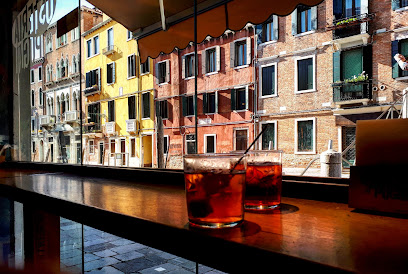
Dolce Vita Venezia
Discover the vibrant atmosphere and exquisite cocktails at Dolce Vita Venezia, a hidden gem in Venice's Dorsoduro district.
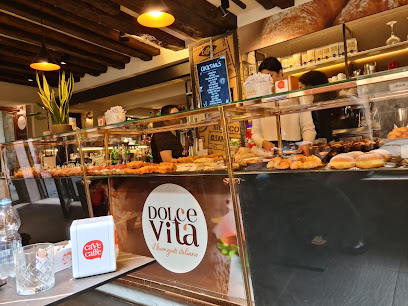
Bar Ai Artisti
Discover the charm of Venice at Bar Ai Artisti, a delightful wine bar offering an exquisite selection of wines and local ambiance.
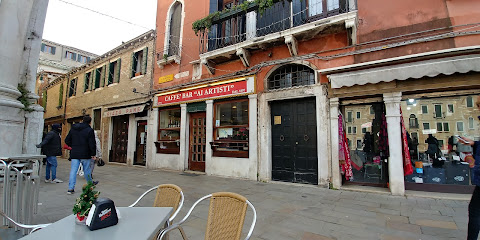
Do Draghi
Discover the lively spirit of Venice at Do Draghi, a bar that blends exquisite cocktails, live music, and a vibrant atmosphere.
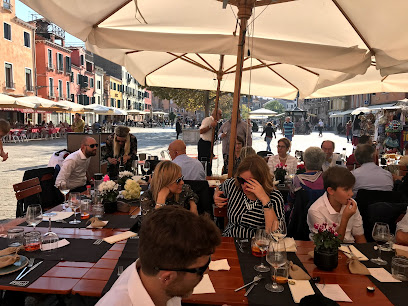
Bacarotto
Experience the vibrant atmosphere and exquisite cocktails at Bacarotto, a charming bar in the heart of Venice.
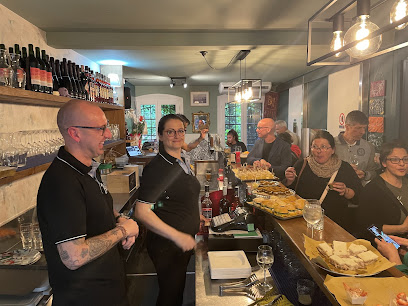
Local Phrases
-
- HelloCiao
[chow] - GoodbyeArrivederci
[ah-ree-veh-dehr-chee] - YesSì
[see] - NoNo
[noh] - Please/You're welcomePer favore/Prego
[pehr fah-voh-reh/preh-goh] - Thank youGrazie
[graht-zee-eh] - Excuse me/SorryMi scusi/Scusa
[mee skoo-zee/skoo-zah] - How are you?Come stai?
[koh-meh stah-ee] - Fine. And you?Bene. E tu?
[beh-neh/ay too] - Do you speak English?Parli inglese?
[pahr-lee een-gleh-zeh] - I don't understandNon capisco
[nohn kah-pee-skoh]
- HelloCiao
-
- I'd like to see the menu, pleaseVorrei vedere il menu, per favore
[vohr-ray veh-deh-reh eel meh-noo, pehr fah-voh-reh] - I don't eat meatNon mangio carne
[nohn mahn-joh kahr-neh] - Cheers!Salute!
[sah-loo-teh] - I would like to pay, pleaseVorrei pagare, per favore
[vohr-ray pah-gah-reh, pehr fah-voh-reh]
- I'd like to see the menu, pleaseVorrei vedere il menu, per favore
-
- Help!Aiuto!
[ah-yoo-toh] - Go away!Vai via!
[vah-ee vee-ah] - Call the Police!Chiama la polizia!
[kee-ah-mah lah poh-lee-tsya] - Call a doctor!Chiama un medico!
[kee-ah-mah oon meh-dee-koh] - I'm lostMi sono perso
[mee soh-noh pehr-soh] - I'm illSto male
[stoh mah-leh]
- Help!Aiuto!
-
- I'd like to buy...Vorrei comprare...
[vohr-ray kohm-prah-reh] - I'm just lookingSto solo guardando
[stoh soh-loh gwar-dahn-doh] - How much is it?Quanto costa?
[kwahn-toh koh-stah] - That's too expensiveÈ troppo caro
[eh troh-poh kah-roh] - Can you lower the price?Puoi abbassare il prezzo?
[pwah-ee ahb-bahs-sah-reh eel preh-tsoh]
- I'd like to buy...Vorrei comprare...
-
- What time is it?Che ora è?
[keh oh-rah eh] - It's one o'clockÈ l'una
[eh loo-nah] - Half past (10)Sono le dieci e mezza
[soh-noh leh dee-eh-chee eh meh-tzah] - MorningMattina
[maht-tee-nah] - AfternoonPomeriggio
[poh-meh-ree-joh] - EveningSera
[seh-rah] - YesterdayIeri
[yeh-ree] - TodayOggi
[oh-jee] - TomorrowDomani
[doh-mah-nee] - 1Uno
[oo-noh] - 2Due
[doo-eh] - 3Tre
[treh] - 4Quattro
[kwah-troh] - 5Cinque
[cheen-kweh] - 6Sei
[seh-ee] - 7Sette
[seht-teh] - 8Otto
[oh-toh] - 9Nove
[noh-veh] - 10Dieci
[dee-eh-chee]
- What time is it?Che ora è?
-
- Where's a/the...?Dov'è un/il...?
[doh-veh oon/eel] - What's the address?Qual è l'indirizzo?
[kwahl eh leen-dee-ree-tsoh] - Can you show me (on the map)?Puoi mostrarmi (sulla mappa)?
[pwah-ee mohs-trahr-mee/suhl-lah mahp-pah] - When's the next (bus)?Quando passa il prossimo (autobus)?
[kwahn-doh pahs-sah eel prohs-see-moh/au-toh-boos] - A ticket (to ....)Un biglietto (per ....)
[oon beel-lyet-toh/pehr]
- Where's a/the...?Dov'è un/il...?
History of Dorsoduro
-
Dorsoduro, one of the six historic districts (sestieri) of Venice, was established during the early Middle Ages, around the 9th century. Its name, meaning 'hard back', reflects the area's more solid ground compared to the marshy surroundings of Venice. It became a vital residential area for the Venetian aristocracy as the city expanded.
-
During the Renaissance, Dorsoduro became a hub for artists and intellectuals. The construction of the Accademia di Belle Arti in the 18th century emphasized the neighborhood's importance in the arts. Notable artists such as Titian and Tintoretto had their works displayed in the Basilica di Santa Maria della Salute, which was built to commemorate the end of the plague in 1631.
-
The early 19th century brought significant changes to Dorsoduro during the Napoleonic rule. The French administration imposed reforms that altered the social and economic landscape of Venice. Dorsoduro was affected by these changes, leading to the secularization of many religious properties and the redistribution of land.
-
The establishment of the Università Ca’ Foscari in 1868 marked a new chapter in Dorsoduro's history. This institution has evolved into one of Italy's leading universities, contributing to the neighborhood's academic and cultural atmosphere. The presence of students and intellectuals has shaped the local culture and community.
-
Today, Dorsoduro is known for its vibrant art scene, picturesque canals, and historic architecture. It is home to the Peggy Guggenheim Collection, which showcases modern art and attracts visitors from around the world. The neighborhood retains its charm with traditional Venetian houses, artisan shops, and local eateries, making it a unique blend of history and contemporary culture.
Dorsoduro Essentials
-
Dorsoduro is easily accessible from other neighbourhoods in Venice. You can reach Dorsoduro by Vaporetto (water bus) services, such as Line 1 and Line 2, which stop at various points including the Accademia and Salute stations. Alternatively, you can walk from nearby neighbourhoods like San Marco or Santa Croce, as Dorsoduro is well-connected and pedestrian-friendly.
-
The best way to get around Dorsoduro is on foot, as the neighbourhood is compact and filled with charming canals and narrow streets. Vaporetto services are also available for longer distances, connecting you to other parts of Venice. Bicycles are not commonly used in Venice due to the city’s layout, but you can rent one on the mainland if you plan to explore further.
-
Dorsoduro is generally safe for tourists, but standard precautions should be observed. Be cautious of pickpockets in crowded areas, especially near tourist attractions like the Peggy Guggenheim Collection. Avoid walking alone late at night in poorly lit areas, and always be aware of your surroundings.
-
In case of an emergency, dial 112 for police, fire, or medical assistance in Italy. Nearby hospitals include Ospedale Civile and Ospedale dell'Angelo. It is advisable to have travel insurance that covers emergencies. Pharmacies are widely available for minor health issues, and many have English-speaking staff.
-
Fashion: Do wear comfortable shoes for walking and dress modestly when visiting churches. Don't wear beachwear outside of the beach areas. Religion: Do respect local customs, and ensure you cover your shoulders and knees when entering religious sites. Public Transport: Do validate your Vaporetto ticket before boarding. Don't block pathways or doors while waiting. Greetings: Do greet locals with a friendly 'Buongiorno' (Good morning) or 'Buonasera' (Good evening). Eating & Drinking: Do try local cicchetti (Venetian tapas) in bacari (wine bars). Don't eat while walking; it's considered impolite.
-
To experience Dorsoduro like a local, visit the quieter canals and lesser-known art galleries. Take a stroll along the Zattere promenade at sunset for stunning views of the Giudecca Canal. Try to visit local markets in the morning for fresh produce and interact with vendors. Attend local festivals and events, like the Feast of the Madonna della Salute in November, to immerse yourself in the community's traditions.
Trending Landmarks in Dorsoduro
Nearby Cities to Dorsoduro
-
Things To Do in Piran
-
Things To Do in Portorož
-
Things To Do in Verona
-
Things To Do in Izola
-
Things To Do in Rovinj
-
Things To Do in Koper
-
Things To Do in Ravenna
-
Things To Do in Trieste
-
Things To Do in Nova Gorica
-
Things To Do in Sežana
-
Things To Do in Bologna
-
Things To Do in Pula
-
Things To Do in Modena
-
Things To Do in Postojna
-
Things To Do in Rimini













